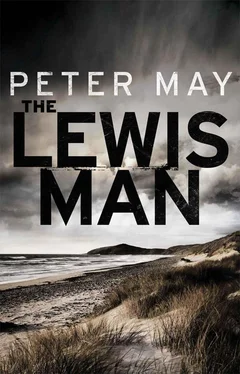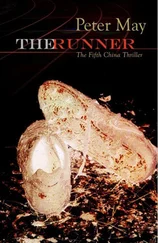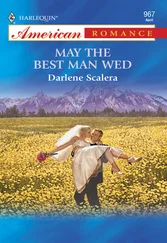Peter May - The Lewis Man
Здесь есть возможность читать онлайн «Peter May - The Lewis Man» весь текст электронной книги совершенно бесплатно (целиком полную версию без сокращений). В некоторых случаях можно слушать аудио, скачать через торрент в формате fb2 и присутствует краткое содержание. Жанр: Триллер, на английском языке. Описание произведения, (предисловие) а так же отзывы посетителей доступны на портале библиотеки ЛибКат.
- Название:The Lewis Man
- Автор:
- Жанр:
- Год:неизвестен
- ISBN:нет данных
- Рейтинг книги:3 / 5. Голосов: 1
-
Избранное:Добавить в избранное
- Отзывы:
-
Ваша оценка:
- 60
- 1
- 2
- 3
- 4
- 5
The Lewis Man: краткое содержание, описание и аннотация
Предлагаем к чтению аннотацию, описание, краткое содержание или предисловие (зависит от того, что написал сам автор книги «The Lewis Man»). Если вы не нашли необходимую информацию о книге — напишите в комментариях, мы постараемся отыскать её.
The Lewis Man — читать онлайн бесплатно полную книгу (весь текст) целиком
Ниже представлен текст книги, разбитый по страницам. Система сохранения места последней прочитанной страницы, позволяет с удобством читать онлайн бесплатно книгу «The Lewis Man», без необходимости каждый раз заново искать на чём Вы остановились. Поставьте закладку, и сможете в любой момент перейти на страницу, на которой закончили чтение.
Интервал:
Закладка:
I was waiting at Berneray for the first ferry of the day when dawn came pale out of the mist across the Sound of Harris. Most of the other vehicles waiting there were commercial, and no one paid much attention to me. But I had my dead brother in the back of a stolen van, and I was nervous as hell. Here was where I would be most vulnerable, and at Leverburgh when the ferry berthed. But I tried to put myself in the shoes of the police. I had stolen a gun, some money and a van. They didn’t know about Peter, of course. They would assume we were in it together. Where would we go? I was sure they’d think we would try to make it back to the mainland. In which case we would have driven to Lochmaddy to catch the ferry to Skye. Why would we head north to Harris, or Lewis? Well, that was my reasoning, although right then I didn’t have that much faith in it.
The ferry crossed the Sound like a ghost that morning, just a gentle swell on a pewtery sea, the sun obscured by thick, low cloud. And then I was off up the ramp at Leverburgh and on the road again.
That’s when I saw the beaches for the first time, at Scarista, and Luskentyre, and drove through the tiny village of Seilebost, realising that’s the place I was supposed to come from. I stopped there for just a few minutes, following a track out on to the machair, and gazed over the golden sands that seemed to stretch all the way to eternity. I was Tormod Macdonald now. And this is where I grew up. So many people I had been, and was, and no doubt would be in the future. I got back in the van and drove without stopping, passing the outskirts of Stornoway, across the Barvas moor to the west coast road that led to Ness. I could hardly get much further away.
At Barvas I turned off on a bumpy dirt track that led out past a few houses dug in at the roadside, to a windswept loch almost entirely locked in by the land. I could see the sea breaking all along the shore in the distance, and sat there with Peter, waiting for dark.
It seemed to take forever to come. My stomach growled and snarled at me. I’d put nothing in it for nearly twenty-four hours, and I felt quite light-headed. At last, I watched the light dying into darkness along the western horizon, and Donald Seamus’s old van coughed its fumes into the night. I bumped back along the track to the main road and turned north.
At Siader I spotted a track heading off into the dark, towards the sea, and I turned off on it, extinguishing my lights, and making my slow, painful way out towards the cliffs, navigating only by infrequent fleeting patches of moonlight. Within sight and sound of a sea that seemed to glow almost phosphorescent in the dark, I killed the motor and got out of the van. There was not a light anywhere to be seen, and I retrieved Donald Seamus’s tarasgeir from the back of the vehicle.
Even though the bog was soft and wet, it took me nearly an hour to dig a hole in it big enough for Peter’s final resting place. First I cut turfs off the top and laid them to one side, and then dug, and dug, deep enough that the water seeping into the hole would be displaced by the body. Deep enough that when I had filled it in, and replaced the turfs, no one would ever know it had been disturbed. And even if they did, would probably think it had been some abortive attempt to cut peat. But I knew the land would knit together in no time, sealing him in, folding him into its arms and holding him in its embrace for ever.
When I had finished, finally, I unwrapped my brother from his blanket and laid him carefully in his grave. I knelt at his head, and kissed him, and prayed for his soul, even although I was no longer certain that there was a God out there. Then I covered him over, so consumed by sorrow and guilt that I could hardly wield the spade. When I had replaced the last turf, I stood for ten minutes or more, letting the wind dry my sweat before lifting the bloody blanket and trudging over the moor and down across a jumble of rocks to a tiny, sandy inlet.
There I crouched in the sand to give shelter from the wind as I set light to the blanket, then sat upwind of it to watch its flames flare and dance briefly in the dark, carrying sparks and smoke off into the night. A symbolic cremation. My brother’s blood returned to the earth.
I sat on the beach until the cold nearly took me, before walking stiffly back over the moor to the van and starting the motor. Back along the track to the road, and then south through Barvas, before turning off east on a narrow track somewhere near Arnol. A track that wound out through the bog towards a rising of hills. I had been going to set the van on fire, but always feared it would be seen, no matter how remote I went. And that’s when I saw, in a moment of moonlight, the loch shimmering below me. I took my stuff out of the back and drove it to the edge of the drop. Then I cut the engine and jumped out into soft turf, my shoulder to the door, helping it the last few feet, till it took on its own momentum.
Off it went down the hill in the dark, and I heard more than saw it hit the water. In brief blinks of moonlight over the next hour, sitting up there on the hill, I saw a part of it still visible above the surface, and I thought perhaps I had made a terrible mistake. But by morning it was gone.
I used the hours of darkness to dismantle the shotgun that Donald Seamus had used to shoot rabbits, so that I could fit it into my bag. Then at first light I hoofed it back across the moor to the road. I had only been walking five minutes in the direction of Barvas when someone stopped to give me a lift. An old crofter on his way into Stornoway. He talked and talked, while I felt life slowly coming back to my limbs, warmed by the heater in his car. We were about halfway across the Barvas moor when he said, ‘It’s a strange sort of Gaelic you speak, son. You’re not from around here.’
‘No,’ I said. ‘I’m from Harris.’ And I reached across to shake his hand. ‘Tormod Macdonald.’ Which is who I have been all my life since.
‘What’s your business in Stornoway?’
‘I’m taking the ferry to the mainland.’
The old crofter grinned. ‘Good luck to you, then, boy. It’s a rough crossing.’
I had no idea, then, that I would come back when it was over. Drawn by the need, somehow, to be near to my brother, as if that could in some way make amends for my dismal failure to keep my promise to my mother.
‘Where are we now?’ I ask.
‘This is Leverburgh, Dad. We’re taking the ferry over to North Uist.’
North Uist? I’m sure I don’t live there. I scratch my head. ‘Why?’
‘We’re taking you home, Dad.’
THIRTY-SIX
Marsaili and Fin had left Fionnlagh with no idea of how long they might be gone, so she had given him her phone in order that she could always reach him. And late that morning he had driven down to Crobost stores to stock up the larder for the next few days.
It was a filthy morning, the wind sweeping in explosive gusts across the point, bringing with it waves of fine wetting rain, and laying flat the new-growth spring grasses. But he didn’t mind. He had grown up with this. It was normal. He loved to feel the rain stinging his face. He loved, too, the way the sky would open up at unexpected moments to let the light through. Flashes of cold, blinding sunlight on the surface of the ocean, like pools of mercury. They could last minutes or seconds.
Dark clouds lumbered across the landscape in folds so close to the earth it was almost possible to believe you could reach up and touch them. The top of the hill was nearly lost in cloud as Fionnlagh drove back up to the bungalow. Donna had promised to have lunch waiting for them. Nothing special. A bacon and egg salad, she had said. He was surprised to see a white Range Rover drawn up on the gravel above the house where he would normally park his Mini. He didn’t recognize the licence plate. On Lewis it was customary to look at the number of an approaching vehicle and wave if you recognized it. Faces were rarely seen through windscreens reflecting light, or smeared with rain. This wasn’t an island number.
Читать дальшеИнтервал:
Закладка:
Похожие книги на «The Lewis Man»
Представляем Вашему вниманию похожие книги на «The Lewis Man» списком для выбора. Мы отобрали схожую по названию и смыслу литературу в надежде предоставить читателям больше вариантов отыскать новые, интересные, ещё непрочитанные произведения.
Обсуждение, отзывы о книге «The Lewis Man» и просто собственные мнения читателей. Оставьте ваши комментарии, напишите, что Вы думаете о произведении, его смысле или главных героях. Укажите что конкретно понравилось, а что нет, и почему Вы так считаете.












